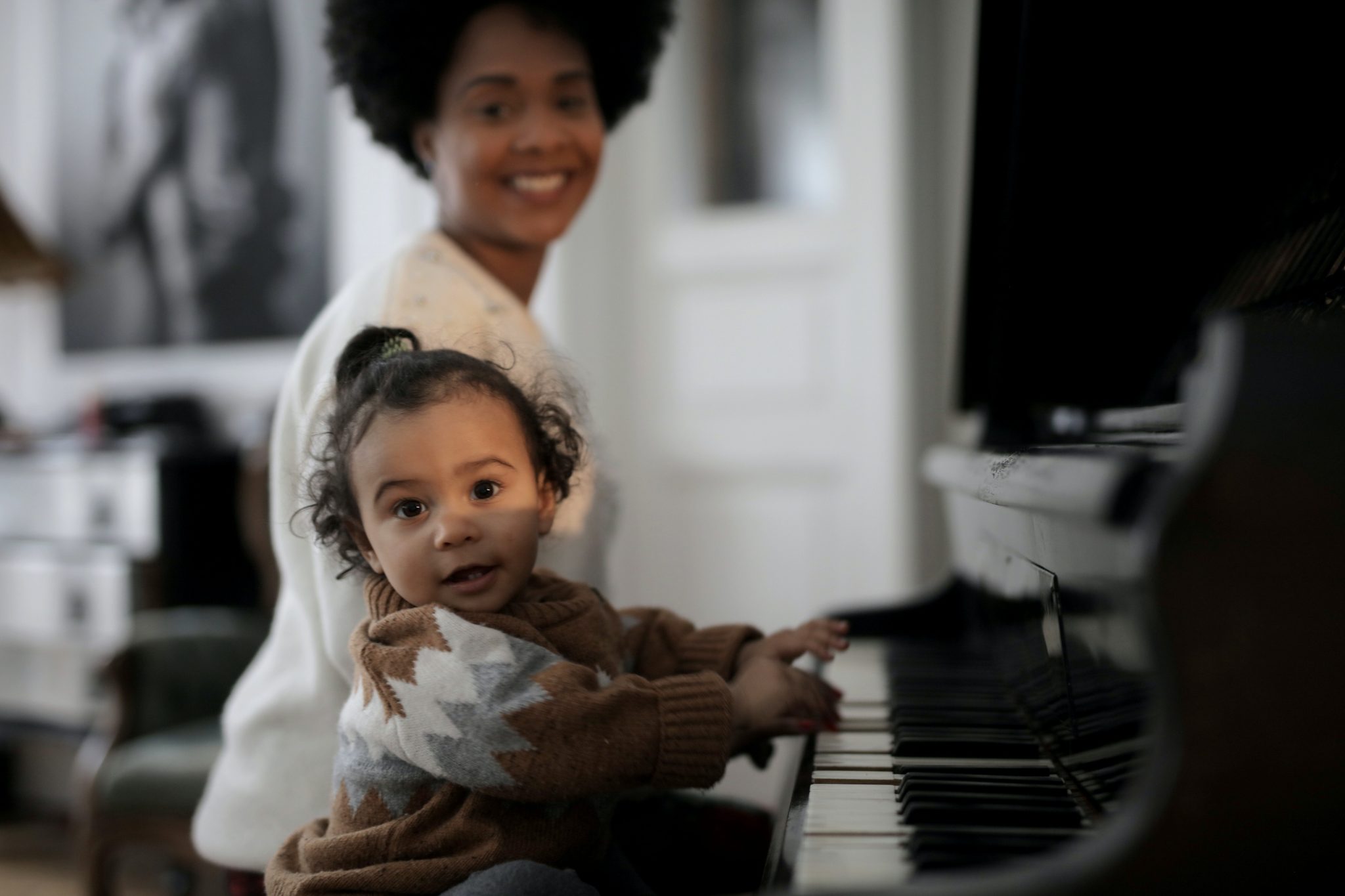Teaching Your Kids At Home? Here’s How Music Can Help.
By Crystal Hammon
You’d be hard pressed to find an educator – let alone a music educator – who would discourage you from listening to classical music or sharing it with a child. And with good reason, given the growing evidence that music is good for the brain and the body.
Interest in classical music’s effects on health and human development blossomed in the 1990s, when a researcher named Francis Rauscher published a paper about some of her research in the journal Nature. Rauscher gave college students a test that measured their spatial reasoning after they listened to a Mozart Sonata. She discovered that they performed significantly better than peers who didn’t listen, if only for a short period of time.
Dubbed “the Mozart Effect,” the idea that listening to classical music somehow made babies and children more intelligent was exaggerated, but it became wildly popular. That’s what spawned the sought-after Baby Mozart series, which implied that parents could stimulate their child’s brain simply by sharing Mozart masterpieces.
The truth is far more nuanced, according to Abby Means, an early childhood education expert and music educator who teaches at the University of Indianapolis and is working on a doctoral degree at the University of Illinois. “On one hand, there’s no ‘magical’ element of music that will make you smarter, however music is magical because it serves as a way to express ourselves independently or connects with others through creativity, intelligence and emotions,” she says.
When children learn music and participate in music ensembles and musical activities, they reiterate other skills. In an ensemble, for example, students learn to cooperate with their peers and accept non-verbal cues from a director. “The brain is also using what’s called concrete imagery, which is about whether my brain can hold the place of where the music is going,” Means says. “If I’m on a clarinet, for example, and I have two or three measures of rest in a song where everyone else is playing, can I count the time in my head and come in on my cue?”
Playing music is also a form of reading, and it can help children’s language and reasoning skills. That explains why music educators frequently hear from grateful parents whose children suddenly improve in school after they start playing a musical instrument. Whether kids play a music instrument or not, they derive some developmental and health benefits just from becoming part of the music community, if only as an active listener.
If you’re a parent who wants your child to reap music’s rewards, here’s what you should know:
Start early. Before the age of 8, children are a blank slate in terms of their musical taste. Unless they have sensory sensitivities, children will accept any genre of music during their early development. “We talk a lot about how kids are encultured, which is just informal learning from life,” Means says. “Turn on some classical music. It may be background, but they are still getting used to a genre that won’t be foreign to them later on.”
Do music together. A parent’s involvement is what makes sharing music a meaningful experience for a child during early development. The things that really stand out about childhood are things you do repeatedly together, your traditions and time spent together, Means says. A child’s feelings of safety, security and your attention matter as much as the musical experience.
Create different modalities for listening. Play games, dance and act out the stories linked to classical music with your child. Means is also a fan of using literature and storytelling to introduce children to classical forms of music. “There are so many fabulous books out there that tell the story of Camille Saint-Saëns’ The Carnival of Animals, and most of them come with a CD, so you can listen to it as you read about it,” she says. Introduce opera with The Soup Opera, a book supported by YouTube sing-alongs.
Help kid learn about instruments. “One of the reasons many adults aren’t comfortable with classical music is that we’re not familiar with the instruments,” Means says. Give kids a jumpstart on orchestral instruments with these resources:
- The Composer is Dead, by Lemony Snicket, a mystery that’s appropriate for first-grade students and higher, with a series of activities that leads kids to investigate an orchestra.
- Listening Adventures: A Young Person’s Guide to the Orchestra, with music composed by Benjamin Britten. Children go on a safari to find instruments that have “gone wild.” The site, sponsored by Carnegie Hall, lets kids listen for pitch, learn about the four families of instruments and experiment with the sounds each instrument makes.
Bottom line, there’s no guarantee that listening to classical music will make your kid smarter, or that they’ll grow up to love it. But there’s another reason you might consider making it a natural part of a well-rounded life. “We need to appreciate all cultures, and although there is nothing superior about Western classical music, it’s really sad and disappointing when part of a culture begins to disappear,” Means says. “We shouldn’t be stuck in the past, but I think it’s really important for kids to have connections to the past.”








Leave a Reply